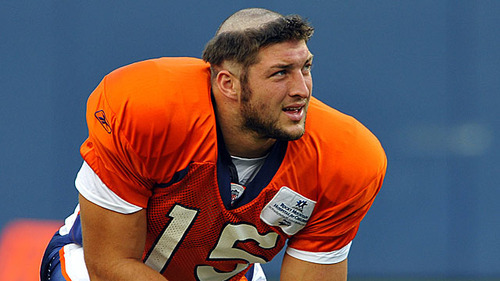A recent
conversation got me thinking about why we watch certain sports over others and
what our choice of sports tells us about ourselves. The tail end of the
conversation, and the part that really got we asking these questions, went
something like this:
Friend: "One sport I will never understand is
MMA. I mean, really, what kind of person wants to watch two people beat each other
like that?"
Me:...
Awkward
silence....followed by... more awkward silence.
My
response, or lack thereof, let him know at least one person who would watch these
barbaric beatings. He seemed rather amused by this, as apparently, and I get
this quite often, I don't seem like that "type."
This
conversation really got me thinking, though. Who is the "type" to watch MMA? And, as indicated by the tone
of his voice when he asked "what kind of person...," is there
something morally contemptible about MMA fans, or about the sport in general?
And
that's how I stumbled upon the topic of this week's blog post: The ethics of
MMA and why we watch it.
Before
we can understand the type of person who watches MMA and pass moral judgment
upon them, we need to have at least a loose understanding of the ethical issue
at hand. The question of the morality of a sport whose
objective it is to inflict injury on another to the point where they can no
longer defend themselves is nothing new. Father Richard A. McCormick, a
Catholic moral theologian and teacher, discussed just this in his 1962 Sports Illustrated article "Is Professional Boxing Immoral?"
McCormick,
I believe, aptly captures the essence of the problem. Though perhaps without
giving a definitive answer, he illustrates why, exactly, boxing in particular
poses this special philosophical question. And so, we will turn to Father
McCormick's elucidation of the topic as a foundation for our own discussion.
In
a nutshell, McCormick discusses the unique position of boxing (at the time) as
the only sport "whose primary objective toward
victory is to batter and damage an opponent into helplessness and the
incapacity to continue." McCormick sites facts to back up his
position on boxing, pointing to the frequent brain injuries received during
boxing bouts as evidence of its immorality.
Here,
some may argue that other sports, such as football, are immoral because they
also cause brain trauma among players. However, as McCormick indicates, these
injuries are incidental- that is, the purpose of football is to get the ball
across the goal line in order to score points, it is not to cause head trauma.
In boxing, the primary goal of the sport is to incapacitate the opponent. It is
the injury caused in combination with the purpose of the sport that makes it
morally questionable, not simply the fact that such injuries may result from
participation in the sport. In a sport like football, intentionally trying to
injure an opponent is regarded as clearly unethical. It is here that McCormick
poses the important question, "If direct damage to the opponent is immoral
in all other sports, why not in this business of violence?"
He
answers this question, "theologians believe that when a man pounds another
into helplessness, scars his face, smashes his nose, jars his brain and exposes
it to lasting damage, or when he enters a contest where this could happen to
him, he has surpassed the bounds of reasonable stewardship of the human person."
This
is not the only issue at hand, either. McCormick sites the "fostering of
brutish instincts" as another morally objectionable aspect of boxing, eloquently
describing the concern:
"The crowd too often has come for blood and the knockout.
The knockout is the touchdown pass, the home run of boxing. The nearer it is,
the more frenzied the howling of the crowd... We occasionally hear the referee
urge the boys to mix it up, give the fans their money's worth. When a boy is
being mauled around the ring, the arena comes alive and emotions run high. The
fighter is goaded by the crowd; his own fury further stimulates them. The
brutish instinct is in command. At this pitch the finest moves in boxing are
missed or—worse—greeted by a chorus of hissing and booing...The modern
prizefight is increasingly the canonization of brute force—and that at a time
when we are struggling with all our might to understand the meaning of force in
the world."
And
with these two problems in mind, McCormick concludes that boxing is, indeed,
immoral.
Which
brings us back to the ethics of MMA. The similarities between boxing and MMA
are clear. Using the same criteria as McCormick used, it seems that certainly
if boxing is immoral, then MMA, which, at least on the surface, is even more
brutal than boxing, must also be. After all, McCormick was concerned about
facts, specifically the facts surrounding head trauma, and a 2014 study in Ontario, Canada found that "rates of KOs and TKOs in MMA are higher than
previously reported rates in other combative and contact sports."
So
I guess the verdict is in. MMA is unethical.
...Or
is it?
First,
some of the conclusions that may be drawn from the 2014 Canadian study, such as
the inference that greater numbers of knock outs equal higher rates of
traumatic brain injury, seem to be directly contradicted by another more recent
study done at the University of Alberta, which found that, while MMA fighters
were more likely to suffer minor injuries, such as bruises and contusions,
boxers were more likely to lose consciousness during a bout or suffer serious
eye injuries.
McCormick
himself leaves room for a combat sport, even some version of boxing, to be
considered moral, saying, "Some, possibly many, elements of professional
boxing could be radically altered, in which case it is quite conceivable that a
different moral evaluation of the sport would have to be made."
Could it be that MMA could meet the criteria for a morally acceptable,
"radically altered," version of boxing?
One
element that McCormick takes contention with is the prominence of head shots in
boxing. "...It is
craniocerebral injury that recently has engrossed the attention of the medical
world," he writes. "Because of the premium placed on the KO and the
TKO, the head has always been the prime target in professional boxing. Blows
directed to the head or face comprise about 85% of all blows delivered in the
ordinary bout. Body blows are principally diversionary tactics to lay open this
prime target."
But
in MMA, there are other ways to end a fight. Depending on the fighter, and his
or her background, a submission may be more in store than an actual knockout. Submissions,
such as chokeholds or armbars, give the fighters a chance to tapout before they
suffer permanent injuries, and take away some of the "premium placed on
the KO and the TKO." Given that the primary goal of the bout is no longer
simply to knock another fighter unconscious, it seems that on this count, MMA
is actually more ethical than boxing.
Additionally,
McCormick writes:
"... even at the professional level the differences between
individual fighters are tremendous. There are those in superb condition who
fight once or twice a year to defend a title—and these are the champions who
are hit the least. Then there are those who all but drag themselves into the
ring to have their brains rattled on a month-to-month basis. To group these
together in a single sweeping rejection would be unrealistic and hazardous."
Some fans of the UFC, the
highest level of professional MMA, often complain that the fighters do not
fight enough. But this is something that McCormick seems to think would make
the sport more ethical, as it makes the sport safer for its participants.
Finally, to get to the question that
started it all, what kind of person does watch MMA? Is it, as McCormick
described boxing fans, those brutish beasts looking for blood? Or is there
something more to it, something deeper and more admirable at play? If so, then on
this count, MMA would also be more ethical than boxing.
Perhaps for some, it is the blood
that attracts them. Perhaps there is a segment of MMA fans that only wishes to
see harm inflicted upon another human being, and who takes pleasure in the
failings of the defeated fighter. But I hope, and perhaps naively believe, that
this is not the primary draw for the majority of MMA fans. And if my attempts at intellectual musings on
the ethics of MMA have so far been unconvincing, seeing as it is Valentine's
day and all, I will now speak from the heart.
 |
| Photo by Rey Del Rio/Getty Images |
MMA is a highly technical sport.
Like any technical sport, it is an art, and a well executed move is beautiful.
A submission or knockout, even if brutal, is the final brushstroke of a
magnificent artwork. There's a certain tension in the fact that something so
beautiful can result in something so ugly, such as a smashed in face or a
broken leg. But perhaps this juxtaposition of the beautiful with the barbaric
is what gives MMA its allure. It's real. It's just like life. A mix of beauty
with harsh reality. And that is why, in the fighters, we see ourselves. We see
the daily grind, the hard work that either pays off or doesn't. We see
ourselves in the winner as well as the loser. We see our own fights in life,
the ones we are going after all on our own, with no teammates to bail us out.
So I guess the answer to my friend's
question is that the type of person who enjoys watching MMA is the type of person
who appreciates beauty on a deep level. Or someone who has fought some sort of battle
in life, whether it be large or small. Or someone who understands the
complexities of life, and sees it reflected in what may be the least likely of
places. Or someone who just enjoys the sight of blood. The type of person who
enjoys MMA could be anyone, really. Because just like any great work of art, it
will have different meanings for different people. They will bring to the art
work their own life experiences, and interpret it accordingly. For some people,
no amount of study or background will make them appreciate Picasso's Guernica, just like no number of words
in a silly blog post will make them appreciate MMA. For others, the sport will
grow on them, but it will take time. And for the rest of us...Well, for the
rest of us, it was love at first fight.




